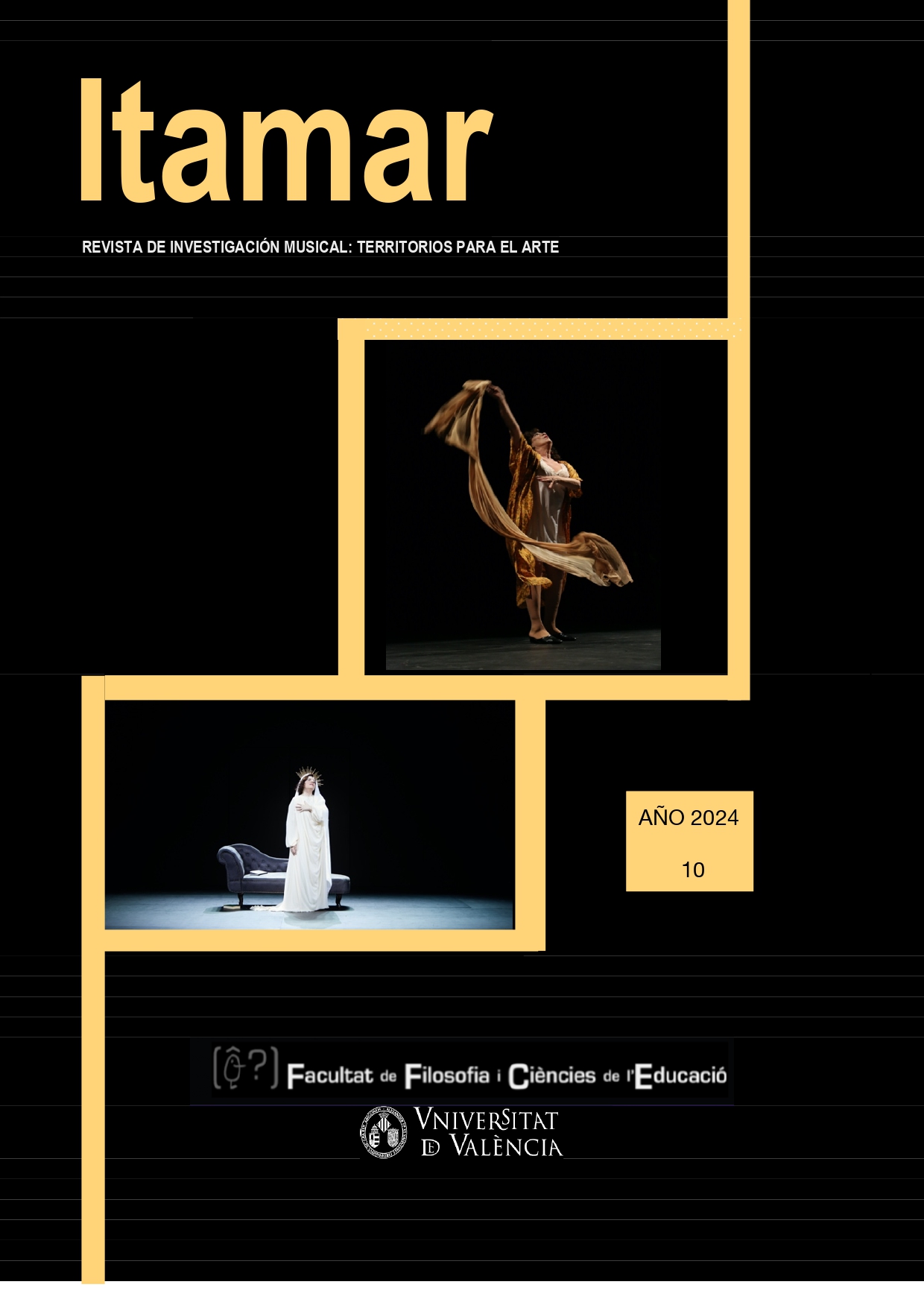The Nature of Love: Corporeality, Drama and the Musical Poetics of the Female Human Voice in Monica Maffía’s ‘La anémona y el jabalí’
DOI:
https://doi.org/10.7203/itamar.10.29132Keywords:
Spanish Civil War, Shakespeare, García Lorca, Mónica Maffía, corporeality, female body, musical poetics, semiotics, female voice, La Anémona y el jabalí Abstract
Abstract
Abstract. In La anémona y el jabalí [The Anemone and the Boar] by Mónica Maffía, codes related to corporeality, musical poetics, semiotics, hermeneutics, poetry, gender, history, ideological positions and social significance are present at the core of this interdisciplinary play located in the precise time of specific dates before the Spanish Civil War breaks in 1936. In the play, female voices tell their stories in a demarcated spatial setting in which socio-ideological capital and ‘cultural values resonate throughout the bodies that constitute them’ . In this radical dramaturgical product, the dualism between mind and body is linked by the female voices of the female bodies on stage, whose expressive agency delivers meaning and action of socio-historical significance. Moving away from the rooted narratives of nostalgia associated with the Spanish Civil War’s imaginary, La anémona y el jabalí presents instead a fluid socio-cultural product, in which the intertwining of the female voice and poetics crafts a dramaturgical work on the multifaceted nature of love in precise chronotope.
 Downloads
Downloads
Downloads
Published
How to Cite
-
Abstract79
-
PDF (Español)125
Issue
Section
License
![]()
ITAMAR is distributed under a license Creative Commons Atribución-NoComercial-CompartirIgual 4.0 Internacional.



